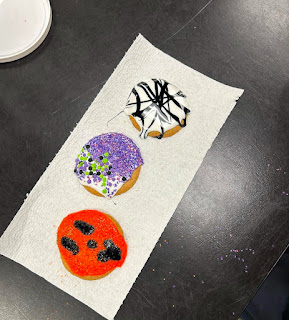
There’s a widely known stereotype that all Asians are math geniuses, ready to solve any problem thrown their way. But the truth is, not all Asians love math, and plenty of them would rather focus and excel on their other interests. This stereotype has been around for years, but it can feel frustrating and unfair to the students if it doesn’t fit.
Trisha Gohkale, an IB sophomore who finds math challenging and isn’t afraid to admit it: “People think I’m naturally good at math, but I’m way more into writing and history,” she explains. “It gets awkward when classmates expect me to help with math homework just because of me being indian.” For Gokhale, the stereotype feels like a jail she’s forced into, even when it doesn’t align with her strengths or interests.
This harmful view is often reinforced by the media, where Asian characters are frequently portrayed as studious and smart-minded. The genius image is repeated in movies and TV shows, creating an expectation that can feel overwhelming. While some Asian students do excel in math, many—like Trisha—would rather dive into subjects that match their passions, whether that’s literature, art, or sports.
IB junior Avi Gupta actually excels in math: “I enjoy it and do well,” he says. “But there’s this pressure that comes with being Asian, where people expect me to be a math genius. It’s frustrating because I feel like it overshadows my other strengths.” While some Asian students struggle in math, there is still an equal amount of people who struggle as well. This stereotype is limiting. Asians can be anything, just like everyone else.
This stereotype isn’t just a minor annoyance. For many students, it leads to stress if they don’t match up with their stereotypical and racist expectations. Imagine being constantly expected to perform well in a subject that might not come naturally. The pressure to fit into this image can be exhausting and even hurt self-confidence when students feel like they’re disappointing people around them.
Teachers and parents can help fight these stereotypes by encouraging students to try different things, no matter their background. When teachers recognize that every student has their own strengths, it makes it easier for kids to focus on what they actually enjoy. Schools can also support this by offering clubs and activities that celebrate all kinds of talents, like art shows or writing contests, showing that every subject is valuable. This way, students feel comfortable being themselves without feeling pressured by stereotypes.
Classmates can make a difference, too. Instead of assuming someone’s good at a subject, it’s better to ask, “What’s your favorite subject?” This way, you learn about who they really are and help create a more welcoming environment. Little things like this can build trust, making school feel like a safe space where everyone’s unique interests are valued. Stereotypes are hard to change, but small steps like these can help everyone feel more seen and understood, breaking down unfair expectations one conversation at a time.
So, how can we challenge this outdated belief? It starts with recognizing people as their own person, not stereotypes. Everyone has different strengths and interests, and it’s important to let them pursue those without being limited by assumptions. Next time you meet someone, instead of assuming they’ll be good at something based on their background. Stereotypes like these might seem harmless, but they end up making students feel misunderstood and unseen. Let’s start recognizing people for who they really are, not for the labels that don’t reflect their true interests and unique skills.























